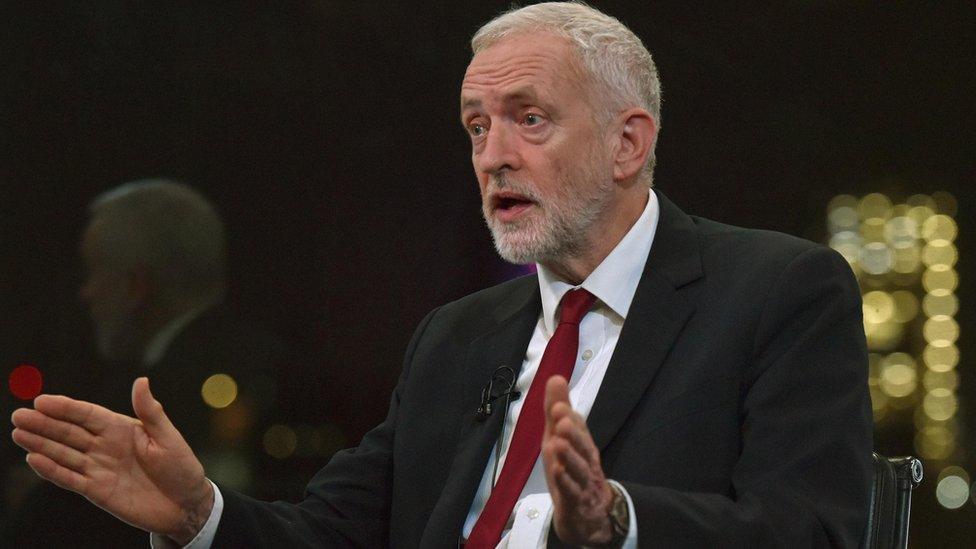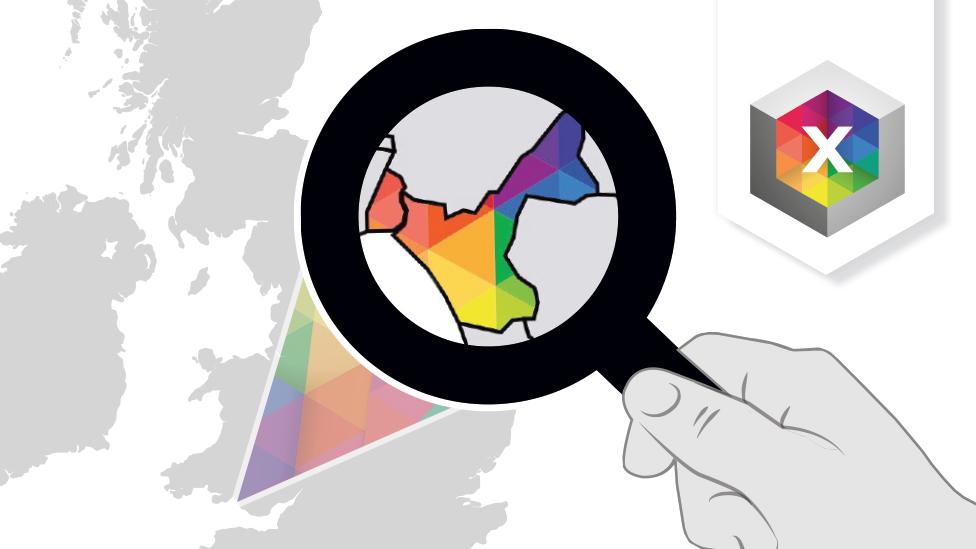General election 2019: Labour may struggle to move on from anti-Semitism row
- Published

Allegations of anti-Semitism have rarely been far from the Labour Party since Jeremy Corbyn has been in charge.
Those close to him say again and again that it is a source of pain and frustration to him, a man who has prided himself on campaigning against racism his whole political life.
Figures within the party are adamant that while they were too slow initially to realise the scale of what was brewing, they have now speeded up the system of complaints and are doing as much as is humanly possible to rid the party of the problem.
They point, too, to the many complaints that have been made about the Tories' attitude to Islamophobia, and the calls from the Muslim Council to hold a full investigation into what is going on there, just as the Equalities and Human Rights Commission (EHRC) is undertaking a formal inquiry into the Labour Party.
The prime minister is also under pressure to launch his party's own inquiry into racism against Muslims, which he promised to do during his leadership bid, but has now reneged on, committing only to a general inquiry into all forms of abuse and prejudice.
But Labour may struggle to change the subject. That is not just because of the strength of the criticisms from the Chief Rabbi.
There are, of course, Jews who back the Labour leader and the party too. But Jeremy Corbyn's refusal to apologise for what has happened may underline the fear that some in his own party hold that he is somehow blind to some of the criticism.
There was anger today that one of the candidates who sat on the platform alongside him had shared material online that talked of "Zionist masters", and is now standing to be a Labour MP, although she had apologised for what happened.
Another candidate on the stage defended Ken Livingstone years ago and questioned the gravity of the party's issue with anti-Semitism last year.
Lord Falconer, the Labour peer who was helping the party get to the bottom of what has been happening, said it was "terrible" and "showed the most appalling insensitivity".
One of his shadow team, Nia Griffith, said on Tuesday night that the party should say sorry to Jewish Labour colleagues and to the wider community, and that she was "very ashamed" of what had happened.
But in the interview with Andrew Neil, the Labour leader stuck resolutely to his formula that he abhors all forms of racism. He visibly means that.
Yet many people watching may have felt it uncomfortable that a simple apology seemed to stick in his throat. You can watch the interview on the BBC iPlayer here.
The other problem for the Labour Party is that the action it says that it has taken firmly, and now speedily, has not brought a resolution.
Labour has been struggling with this for more than three years. That is despite repeated and serious promises to sort it out.
Inevitably, that raises questions, as we are about to enter the final fortnight of this campaign, about how capable the leadership is of getting to grips with tricky and sensitive issues.
- Published11 December 2019

- Published18 November 2019

